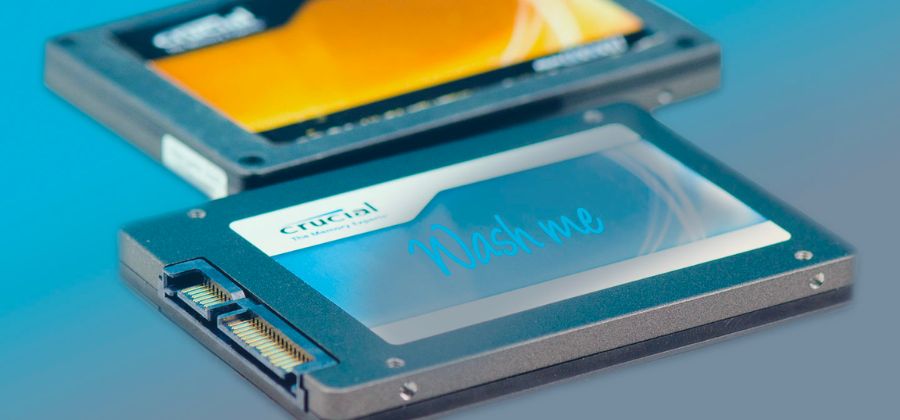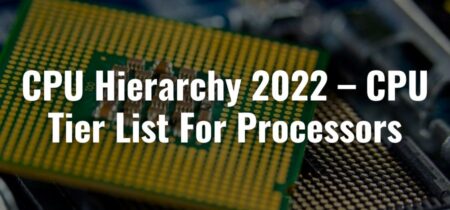Solid State Drives (SSDs) are a relatively new technology rapidly replacing traditional Hard Disk Drives (HDD). SSDs are unique because they operate on solid state memory instead of conventional magnetic storage media, allowing them to access information much faster.
The first SSDs were made using NAND flash memory chips, but today’s SSDs use Multi-Level Cell (MLC) memory chips, which provide even higher performance than NAND.
We’re all aware of the dangers of overheating and the potential consequences of not doing anything about it. But does the SSD get hot? And if it does, how can you tell?
Why Are SSDs Getting Hot?
The solid-state drive is an advanced memory device that offers the best data transfer speed and reliability. However, when it comes to SSDs, some problems might appear in your SSD.
Here are the top 5 common issues that people face with their SSD.
Bad sectors
It is the most common problem faced by people. Whenever the SSD drive is damaged, all files will be lost, and the data won’t be accessible.
Data corruption
If the data is corrupted, it means the information is damaged and won’t be readable.
Slow performance
SSD is an advanced technology that won’t be as fast as hard disk drives.
Freezing
It happens when the data is corrupted, and the data won’t be accessible.
Corrupted OS
Your computer’s operating system is the essential software in your PC, so if your SSD freezes, your system will also get corrupted.
4 Ways to Prevent SSD from Getting Hot
Everyone wants a laptop that can work for a longer time, and we know that it needs to be cooled to work effectively. However, if you are someone who gets hot while working on your laptop, then it is good news for you as you can prevent it from getting more desirable and get your computer working smoothly.
So, here I am going to share with you some of the best tips to help prevent SSD from getting hot.
Make sure your laptop has a cooling pad
It is not good news for you if you have a laptop with no cooling pad. Working for a longer time on your computer without a cooling pad can make your laptop warm, decreasing performance.
So, make sure you have a cooling pad and install it properly.
Install a fan
If you don’t have a cooling pad, then installing a fan on your laptop is the only option left. Installing a fan will help you cool down your computer and make it work even more efficiently.
Check if the power cable is plugged in
The most common problem is when the power cable is not plugged in. Using your laptop without a power cable is not a good idea because it can lead to several issues.
So, check if your power cable is plugged in; if you are not sure, you can also get a power cable tester.
Use a fan
The best way to avoid getting hot while working on your laptop is to make sure you have a fan. If you have a computer with no fan, then you can install a fan in it, which will cool your laptop and make it work more effectively.

Tips for Using SSD Safely and Effectively
It will happen if you are not using the SSD correctly. Here I will share with you the simple ways to use the SSD safely and effectively.
Always use the SSD in the right place
If you are using the SSD, you must buy a case for it. A good point will prevent the data from being affected by the external environment. The patient should be placed in a clean and dust-free place.
Avoid using the SSD for storage
There is nothing wrong if you want to use an SSD as storage, but don’t keep the data on the SSD. Keep the information on the hard disk because it will allow you to access the data fast, and you won’t have any problems.
Avoid using the SSD while the computer is on
Using the SSD while the computer is on will make the computer get faster, and also it will improve the battery life.
How to Keep SSDs Cool?
If you are running the SSDs for a long time, then there is a high chance that you might get overheated, and if that happens, then you will have to replace your SSDs. SSDs are expensive devices, so it is better to avoid unnecessary heating.
SSDs are the best option for storing data, but sometimes the performance of SSDs is affected due to the temperature. So, if you want to run SSDs for a long time, then it is essential to keep the SSDs cool.
Here are the top 6 tips to keep the SSDs cool and avoid overheating:
Monitor the temperature
Before you start using the SSDs, it is recommended to monitor the temperature. Use the software that shows the temperature of the SSDs.
Use a cooling pad
A cooling pad is one of the best ways to keep the SSDs cool. You can use a cooling pad that is attached to the wall.
Reduce the load of the SSDs
It is better to reduce the load of the SSDs if the load is too high. Reduce the number of applications and games that are running in the background.
Keep your case clean.
Keeping your case clean will also help keep the heat generation under control, and you won’t have to change the fan speed frequently.
Use an SSD cooler
When you use an SSD cooler, then it will help your PC to generate less heat and also it will keep your PC working smoothly.
Use an external cooler.
If you don’t have the space to keep your SSD cooler, you should consider buying an external one. External coolers will help you keep your SSD cool and will not only keep the heat generation under control but also improve the life of your SSD.
Frequently Asked Questions
Does heat destroy SSD?
No, heat does not destroy an SSD. But excessive heat may cause degradation of the flash memory. If you’re planning to use your SSD in high-heat locations, you should take extra precautions to protect it.
Do SSD drives need cooling?
Yes, they do. An SSD drive needs a certain amount of airflow to keep it cool, and it does not matter if you’re using it on a laptop or a desktop. These devices require enough airflow to dissipate heat from the CPU, chipset, graphics card, hard drive, and other components.
What gets hotter, SSD or HDD?
Solid State Drives (SSDs) are solid state memory chips used in computers and other electronic devices. They don’t have moving parts and thus are much faster than traditional hard disk drives (HDD). They also have no moving parts and are, therefore, quieter.
HDDs have many more moving parts and thus are slower than SSDs, but they are still quite reliable. However, as SSDs become more common, their prices are going down. For most people, SSDs are now cheaper to purchase than HDDs.
Does an SSD need a heat sink?
No, an SSD doesn’t require a heat sink. However, the SSD heats up when working hard, and the temperature will start increasing if the device is idle for a longer time. In such cases, you should ensure you don’t put the SSD in direct sunlight. You should also check the temperature of the case and the fan to ensure that it doesn’t get overheated.
Final Words
Does the SSD get hot? I hope you get the answer to this question. The SSD was straightforward to set up and set my files on the new drive. Once I set the SSD into my computer, I had no problems installing Windows 10 and setting up my programs. I also have some great advice to help make your experience using the SSD smoother. When you plug in the SSD and boot into your computer, your system will beep and blink, which means your computer is searching for your SSD. I’ve found that most SSDs take a few minutes to find and install, but the SSD I purchased took less than two minutes to boot up.

![How To Fix A CPU Cooler Not Lighting Up? [New Guide 2023]](https://www.drtechreviews.com/wp-content/uploads/2022/07/How-To-Fix-A-CPU-Cooler-Not-Lighting-Up-450x210.jpg)

![Why Is My CPU Cooler So Loud? [Facts 2023]](https://www.drtechreviews.com/wp-content/uploads/2022/07/Why-Is-My-CPU-Cooler-So-Loud-450x210.jpg)
![Fix Dual Monitor Lag In Windows [Explanation For Beginners]](https://www.drtechreviews.com/wp-content/uploads/2022/07/Fix-Dual-Monitor-Lag-In-Windows-450x210.jpg)
![Fix A Monitor Randomly Loses Signal [Problems & Solutions 2023]](https://www.drtechreviews.com/wp-content/uploads/2022/07/Fix-A-Monitor-Randomly-Loses-Signal-450x210.jpg)